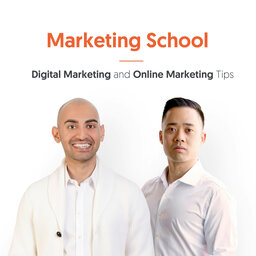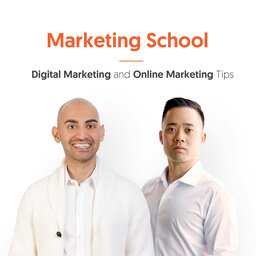This is Where The Future of Course Creating is Going #1841
In episode #1841, we talk about the features that the online courses of the future will have to implement to keep up with the times. A curriculum that encourages community, utilizes gamification, solidifies knowledge using projects, and holds attention via context switching has what it takes to hold its own in times to come.
TIME-STAMPED SHOW NOTES:
- [00:25] Today’s topic: This is Where The Future of Course Creating is Going.
- [01:31] The importance of community for course creation.
- [02:21] How well gamification works for motivation.
- [03:08] Bringing the university experience into online courses using projects.
- [04:20] Holding attention by context switching.
- [05:36] That’s it for today!
- [05:37] Go to marketingschool.io/live to learn more about our upcoming live event.
Get ad-free listening plus exclusive content with Marketing School Pro. Try for free at www.marketingschool.io/pro
Links Mentioned in Today’s Episode:
Leave Some Feedback:
- What should we talk about next? Please let us know in the comments below
- Did you enjoy this episode? If so, please leave a short review.
Connect with Us:
Learn more about your ad choices. Visit megaphone.fm/adchoices
 Marketing School - Digital Marketing and Online Marketing Tips
Marketing School - Digital Marketing and Online Marketing Tips


